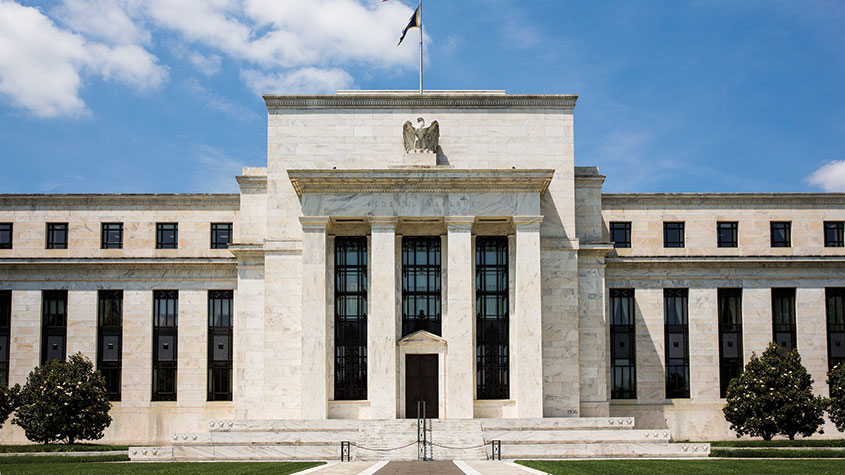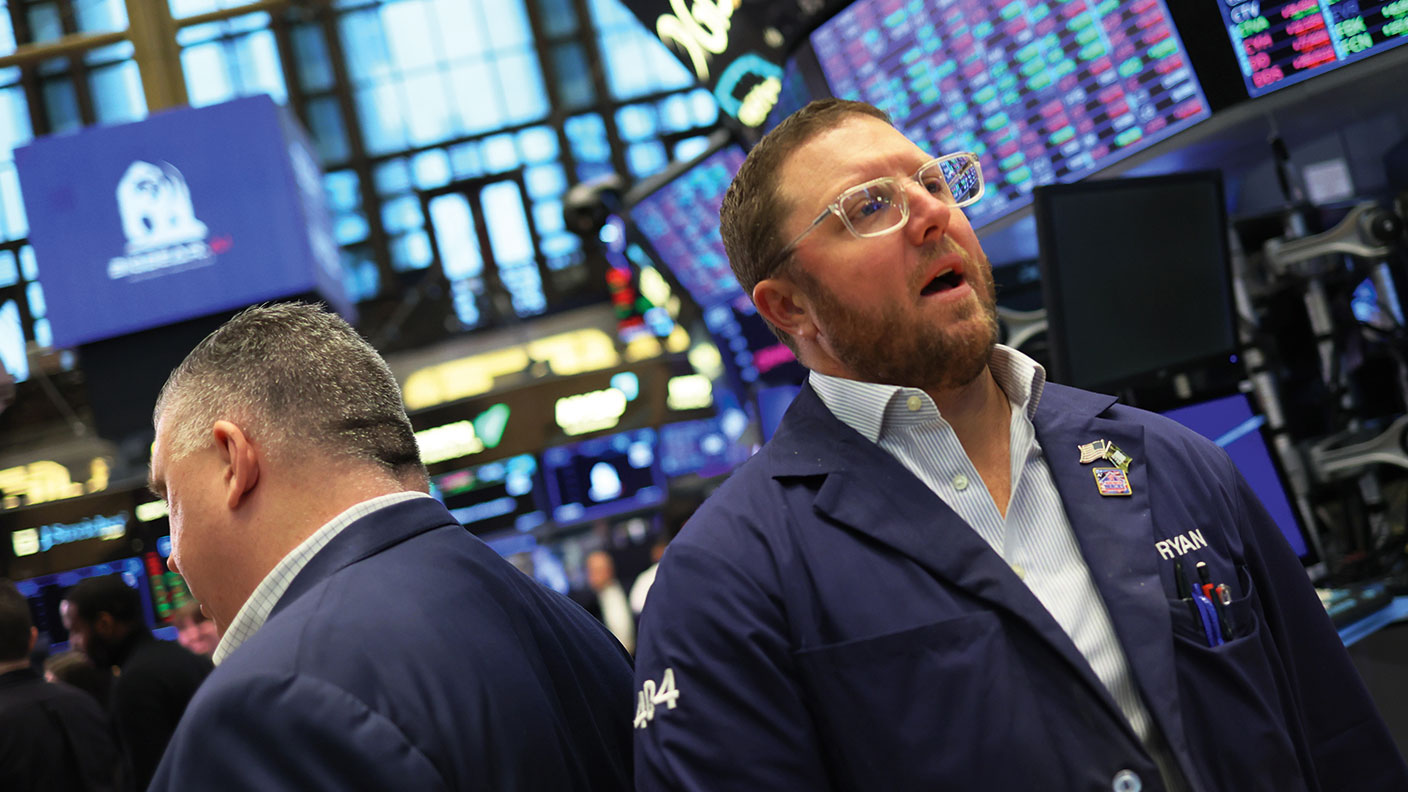Why an ESG approach is particularly suited to bond investors
ESG investing, which focuses on the environmental, social and governance aspects of a business, is all the rage. David C Stevenson explains how bond investors can adopt ESG principles, too.

ESG (which stands for environmental, social and governance) investing has become the new “new” thing in the trend-driven world of investing.
Data from Google Trends shows that searches for the term “ESG” increased threefold from January 2016 to June 2020.
So how can bond investors who are interested in ESG issues go about ensuring that their own investments are in line with their values?
MoneyWeek
Subscribe to MoneyWeek today and get your first six magazine issues absolutely FREE

Sign up to Money Morning
Don't miss the latest investment and personal finances news, market analysis, plus money-saving tips with our free twice-daily newsletter
Don't miss the latest investment and personal finances news, market analysis, plus money-saving tips with our free twice-daily newsletter
More and more bond managers are adopting ESG principles
The growing interest in ESG investing is having some real-world impacts.
For example, the International Monetary Fund’s annual Global Financial Stability Report estimated that more than $9trn, cumulatively, had been divested from fossil fuel-intensive activities by the end of 2019. As recently as 2013, that number was almost zero.
For much of the last few years, the interest in ESG investing has been most apparent in stocks and shares – the number of ESG equity funds has mushroomed in the UK over the last five years and now stands at more than 400.
According to one survey from 2019, sustainable investments accounted for $1.8trn (€1.6trn) of total assets in markets. Yet strategies based around bond (fixed-income) investing made up only a fifth of that, despite the huge scale of global bond markets.
Another survey, by Dutch group NN investment Partners, showed that only 26% of professional fixed-income investors have a clearly defined responsible investment approach, compared to nearly 50% for equities.
Yet despite this slow start, ESG-focused strategies are becoming increasingly common in the world of fixed-income investing. According to researchers Broadridge, the volume of assets under management in ESG global bond funds has grown by 19% a year since 2015.
Of course, this growing interest also introduces an obvious challenge – ethical investing broadly, and ESG investing more narrowly, can mean different things to different investors.
This definitional challenge can in part be solved by breaking down the various ideas into distinct strategies.
Most ESG-focused bond managers operate some form of screening system: this means that they exclude or include sectors (oil businesses for instance) or securities based on pre-defined, number-driven ESG criteria.
Other bond managers might not openly operate as ESG funds, but do integrate some ESG criteria into their traditional financial analysis when buying or selling securities.
Still another group of bond investors might adopt a thematic strategy, where they align their fund allocations with a particular ESG theme, such as clean energy or even “green bonds”.
This group overlaps with yet another group of investors who engage in what’s called “impact investing”. This is where the manager seeks to deliver positive societal outcomes as a key investment objective.
Last, but by no means least, there’s a wide group of managers who seek to engage with a bond issuer to influence what’s called “sustainable behaviour" and practices. In this last category, for example, you might have a bond fund manager who invests in bonds issued by a car company, but who will push the board to reduce its reliance on diesel, say.
Clearly there’s some overlap between all these different strategies, and still plenty of room for confusion. Some bond investors might for instance be perfectly happy to deploy money into an oil firm that is looking at ways to cut emissions (on the basis that if we still need oil, you might as well try to extract it as cleanly as possible), whereas other bond managers might specifically exclude investing in any fossil fuel business at all.
ESG can help to minimise downside risks while supporting positive change
But whatever strategy is used, these fund managers all share one overarching objective which is hugely relevant to every bond investor – the reduction of risk.
Equity investors are, of course, worried about downside risk as well. But at the risk of oversimplification, their main goal is that a share’s price increases by as much as possible.
Bond investors by contrast, are much more concerned about a) making sure they get back the same amount of money that they initially invested, and b) ensuring that the borrower has enough cash to make the regular interest payments.
So managing downside risk is essential for all bond investors, which explains why ESG concerns arguably impact on all bond strategies.
For example, looking out for deteriorating governance at the governmental (sovereign bonds) or board level (corporate bonds) can help bond fund managers to avoid nasty surprises, either in the form of future corruption scandals or corporate negligence.
But as well as avoiding bad news, the rise of ESG also offers up a more positive vision too – that whole new forms of business activity could be financed by issuing bonds. Key here are the UN Sustainable Development Goals (SDGs), a set of standards established to help guide investments that can deliver solid returns as well as a positive societal impact.
The 17 SDGs – adopted unanimously by all 193 UN member states in 2016 – are in effect an official statement of ESG priorities, with the added benefit of targets and even indicators.
The UN reckons that in order to achieve the SDGs by 2030, $3trn to $5trn a year will be required, with the majority of this investment to come from the private sector. That policy push has already resulted in a series of new bonds being issued, such as the Asian Development Bank’s gender bond, issued in late 2017.
These social bonds – bonds issued with the funding of a specific, socially desirable outcome in mind – have become even more popular as the impact of Covid-19 has become more obvious. This year has already been a record one for social bond issuance, with more than $20bn raised for social projects globally.
That said, most of the interest in new bond issuance has focused on green bonds i.e bonds with the specific objective of combating climate change. One widely-watched green bond index (the ICE BofAML Green Bond Index) has shown that the amount invested in bonds with an environmental impact has grown from $55bn in 2015 to $345bn at 31 October 2019.
That astonishing ramp up may just be the beginning of a much bigger push to raise capital for the impending energy transition. Green bonds in particular may be about to become even more mainstream. We’ll have more on those next week.
Get the latest financial news, insights and expert analysis from our award-winning MoneyWeek team, to help you understand what really matters when it comes to your finances.

David Stevenson has been writing the Financial Times Adventurous Investor column for nearly 15 years and is also a regular columnist for Citywire.
He writes his own widely read Adventurous Investor SubStack newsletter at davidstevenson.substack.com
David has also had a successful career as a media entrepreneur setting up the big European fintech news and event outfit www.altfi.com as well as www.etfstream.com in the asset management space.
Before that, he was a founding partner in the Rocket Science Group, a successful corporate comms business.
David has also written a number of books on investing, funds, ETFs, and stock picking and is currently a non-executive director on a number of stockmarket-listed funds including Gresham House Energy Storage and the Aurora Investment Trust.
In what remains of his spare time he is a presiding justice on the Southampton magistrates bench.
-
 Should you buy an active ETF?
Should you buy an active ETF?ETFs are often mischaracterised as passive products, but they can be a convenient way to add active management to your portfolio
-
 Power up your pension before 5 April – easy ways to save before the tax year end
Power up your pension before 5 April – easy ways to save before the tax year endWith the end of the tax year looming, pension savers currently have a window to review and maximise what’s going into their retirement funds – we look at how
-
 Is it time to buy Gilts?
Is it time to buy Gilts?Advice Gilts offer a higher yield than most savings accounts and could be an attractive alternative for those with a large lump sum to invest.
-
 Liability-driven investment: another financial fix has backfired
Liability-driven investment: another financial fix has backfiredAnalysis Liability-driven investment (LDI) has become the latest widely touted investment product to go horribly wrong, says Max King.
-
 Why the Bank of England intervened in the bond market
Why the Bank of England intervened in the bond marketAnalysis A sudden crisis for pension funds exposed to rapidly rising bond yields meant the Bank of England had to act. Cris Sholto Heaton looks at the lessons for all investors.
-
 What the return of the bond vigilantes means for investors
What the return of the bond vigilantes means for investorsAnalysis The US Federal Reserve is dancing to the tune of the bond vigilantes, says Max King. Here’s what that means for stockmarket investors, the economy, and you.
-
 A retail bond for income investors with a 6.5% yield
A retail bond for income investors with a 6.5% yieldTips This new issue from LendInvest could be attractive to income seekers willing to take some risk.
-
 The bear market in bonds isn’t all bad news
The bear market in bonds isn’t all bad newsAnalysis The rise in bond yields and the fall in bond prices can be a good thing or bad thing. Bad for bondholders, but good for many risk-averse pensioners and pension savers. Max King explains why.
-
 The junk-bond bubble bursts
The junk-bond bubble burstsNews Yields in the US high-yield bond market (AKA junk bonds) have soared to more than 8% since the start of the year as prices collapse.
-
 The bond-market bloodbath isn’t over yet
The bond-market bloodbath isn’t over yetNews The bond-market sell-off isn’t done by along chalk – rising interest-rates could yet push yields higher.
